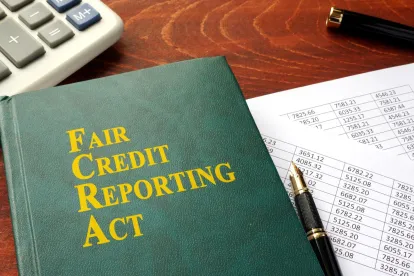On February 1, 2021, the Southern District of New York denied Jason Wimberley’s motion to file a second amended complaint finding that despite the liberal standard applied to pro se pleadings, his proposed second amended complaint failed to state a claim under the Fair Credit Reporting Act (FCRA) against Experian Information Solutions (“Experian”). Wimberley v. Experian Information Solutions, 2021 WL 326972 (S.D.N.Y. Feb.1, 2021).
The proposed second amended complaint contained twelve separate causes of action related to his student loans, including multiple counts for violations of FCRA and New York’s state law counterpart. Wimberley’s credit reporting claims were largely based on his contention that information regarding his student loans was reported beyond the statutory period.
Wimberley re-pled his claims that Experian failed to disclose Automated Credit Dispute Verifications (“ACDVs”) and Universal Data Forms (“UDFs”) in violation of FCRA. The District Court had previously dismissed the same claim and found that there was no reason to depart from the Court’s prior ruling that ACDVs and UDFs are not part of a “consumer’s file” and, therefore, were not subject to disclosure under 15 U.S.C. § 1681g. Wimberley also re-argued a claim under FCRA alleging that Experian “failed to follow procedures to assure maximum possible accuracy” and “failed to conduct a reasonable investigation” relating to the deferred status of his student loans. Id. at *4. The Southern District rejected this claim because, like before, Wimberley failed to allege that the disputed information was inaccurate.
Wimberley’s primary dispute centered on whether Experian was reporting obsolete information in violation of FCRA. Specifically, he believed that because his student loans became delinquent “as early as 2004 and as late as 2009,” and that the account should have “aged off” from the credit reports following the seven-year statutory period. However, the loans at issue were placed in automatic deferment until June 2012; Wimberley subsequently defaulted on his payments again after the deferment ended. The District Court, citing cases from around the country, held “[w]here a delinquency on an account is resolved – for example, the account is made current or placed in forbearance – then the account later becomes delinquent a second time and is then referred to collection, the seven-year reporting window accrues with the second later delinquency.” Id. at *6. Thus, the seven-year period “began anew” in June 2012 when Plaintiff defaulted on the loans after their automatic deferment period.
Finally, the District Court addressed plaintiff’s new claim under 15 U.S.C. § 1681i(a)(5)(B)(ii) in which Wimberley alleged that Experian failed to notify him that certain previously deleted information regarding loan disbursements in 2001 and 2002 was reinserted into his file. The District Court noted that under Section 1681i(a)(5)(B), in order to state a valid reinsertion claim, “the re-reported material must have been deleted pursuant to a [Section] 1681i(a)(1) reinvestigation.” Id. at 8. Wimberley failed to allege that he disputed the loan disbursements to trigger the duty to reinvestigate and merely alleged that the disbursement information was deleted following consolidation but reappeared a few years later. The District Court also noted that his reinsertion claim would have been time-barred by FCRA if otherwise viable.
The District Court also found that Wimberley also failed to state a claim under the state credit reporting laws and for intentional infliction of emotional distress. Wimberley noted an immediate appeal to the 2nd Circuit.




 />i
/>i
